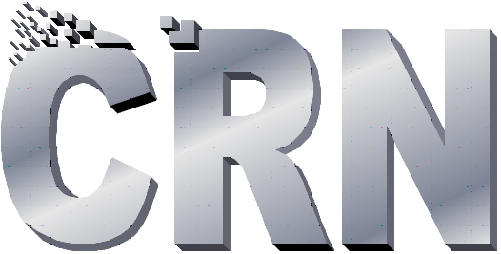 |
|
|
|
|
|
Join the conversation at CRNtalk!
|
CRN Task Force Scenario Project For the year 2007, the major project of the CRN Task Force was to begin producing a series of professional-quality scenarios of a near-future world in which exponential general-purpose molecular manufacturing becomes a reality. The purpose is to offer plausible, logical, understandable "stories" that illustrate the challenge of contending with the implications of advanced nanotechnology. What will that future look like? What can we learn from picturing it now that might help us avoid the worst pitfalls and generate the greatest benefits? In pursuing this project, CRN
pulled together more than
50 people from six continents, with a range of backgrounds and points of view,
to collaborate on the CTF Scenario Development
Project. Most of the participants were members of the CRN Task Force,
but some were not (see the full list here).
Over the course of several months, we conducted a unique
series of "virtual
workshops," using a combination of teleconferencing,
Internet chat, and online shared documents, and developed eight very different
scenarios. We look
forward to your feedback as you read and think about these possible futures.
Scenario 1: Secret Military Development Scenario 2: Positive Expectations Scenario 4: Presidential Commission Scenario 5: ... And Not a Drop to Drink Scenario 7: Newshound Notebook Scenario 8: Breaking the Fever You can participate in a discussion of these scenarios (and anything else you'd like to bring up) by joining our CRN-talk Yahoo group. Also, at CRN's Responsible Nanotechnology blog, we're taking comments on individual scenarios. Nanotechnology Perceptions, a peer-reviewed academic journal from Switzerland's Collegium Basilea, will begin publishing this nanotechnology scenario series in print starting with their March 2008 issue. They will publish several scenarios in that issue, then follow with more in subsequent issues. In addition, they plan to include commentary articles on the scenarios from a "European perspective." NOTE: These scenarios are not predictions, and do not represent outcomes desired by the Center for Responsible Nanotechnology. CRN intends the scenarios to provide a springboard for discussion of molecular manufacturing policies and societal responses. While each scenario can be understood individually, the real value of the process comes from the comparison of multiple scenarios. A strategic response that appears robust in one scenario may be dangerous in another; an organization, community, or polity using these scenarios to consider how to handle the emergence of molecular manufacturing should strive for responses that are viable across multiple scenarios. Finally, the numbering of the scenarios has nothing to do with importance or priority -- it's a simple reflection of the order in which they were completed. CRN Scenario Working Group: Michael Anissimov, Michael Buerger, Steve Burgess, Jamais Cascio, Steffen Christensen, Tom Cowper, Tom Craver, Fern Evitt, Tristan Hambling, Bob Krone, Lynette Jandl, Margaret Kosal, Miriam Leis, P.J. Manney, Hassan Masum, Lauren O'Neill, Deborah Osborne, Chris Phoenix, Mansour Rahimi, Rocky Rawstern, Aaron Rosa, David Harries, Jack Smith, Marcie Sonneborn, Mike Treder, Philippe Van Nedervelde, Natasha Vita-More, Ryan Wagner, Brian Wang, and Nato Welch.
|
Copyright © 2002-2008 Center for Responsible Nanotechnology TM CRN was an affiliate of World Care®, an international, non-profit, 501(c)(3) organization.
|